In the AI Era, Why Solve for Just Code Reviews When the Whole SDLC Is Being Automated?

When we started building Panto, we weren’t fixated on “what” we were building—we were obsessed with “why.” While most startups rush toward MVPs and quick launches, we sat with the discomfort of not knowing our exact direction. And yes, it was awkward to admit, especially when people would ask, “What are you guys building?” and we’d reply, “Still figuring it out.”
We dug deep—5 Whys deep. We explored founder-market fit, researched underserved problems, questioned product viability, and tried to understand what gave us an edge. Each morning, we made lists of potential ideas. Each night, we scratched most of them out. But one thing kept showing up on those lists: code reviews. Never at the center, but never absent either.
Eventually, we asked ourselves two key questions:
- Why does code review keep reappearing in our list of ideas if we’re not picking it?
- Why haven’t we rejected it like the others?
That’s when we hit a realization inspired by the Missing Bullet Hole theory—our own version of survivorship bias. In this analogy, our startup was the World War II plane, and each scratched idea was a bullet hole. Code review was the untouched spot—the critical hit zone we were ignoring.

Why AI Code Review? Why Not?
As a product manager, I used to dread hearing, “This task is stuck in the code review queue. Can someone clear it?”
Pull request review is one of the most essential yet painful parts of the software development lifecycle. Everyone agrees it’s necessary, but few enjoy it. It’s time-consuming, emotionally charged, and often under-appreciated. Yet it’s also one of the only points in SDLC where human feedback directly interacts with code.
In the AI era, large language models (LLMs) are generating more code than ever—some great, most flawed. LLMs may write code like humans, but they also replicate human error. This means:
- Bad code will still be pushed to production
- Someone—or something—must catch it
- And that something must work well with existing developer workflows
That’s exactly why we chose to build AI code review tools.
But AI Can Write Code. So What’s the Problem?
We didn’t want to sit in our bubble. We interviewed 73 developers, from juniors to staff engineers. Here’s what we learned:
- Senior developers spend up to 30% of their time on code reviews, and most of them dislike it
- No one questioned the importance of pull request reviews, just the pain of doing them well
- Everyone wanted a way to do reviews faster, without missing bugs or compromising code quality
No one questions whether pull request reviews are important. The issue is that they’re slow, unstructured, and often frustrating. This was our insight:
In a world where generating code is cheap and easy, ensuring code quality will be expensive and essential.
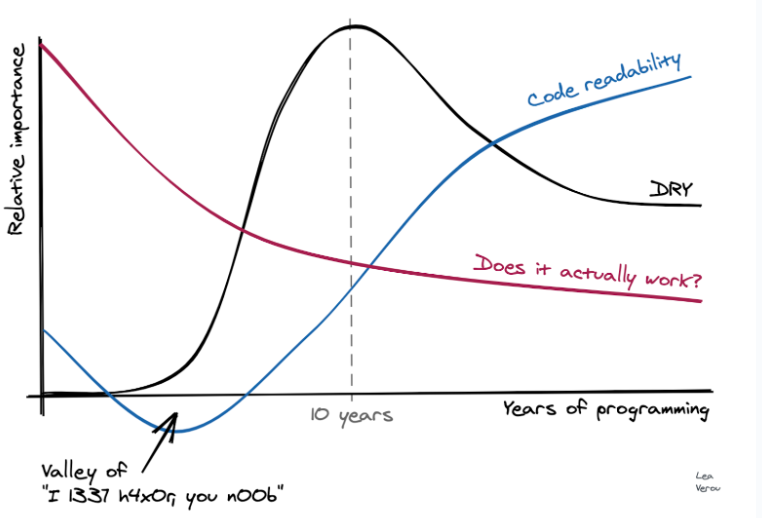
It sounded catchy—but what did it really mean? Could we make it real? Could we build something that not only accelerated code reviews but also made them reliable, high-quality, and context-aware?
Against the Grain
It wasn’t easy explaining our vision. When everyone around us was solving bold, dopamine-rich problems like generative agents or LLM tooling, we were just… fixing AI pull request reviews. Not sexy. Not flashy. Just painfully important.

We took a breath, invoked some Elon Baba motivation, and committed to solving the “boring” problem. Today, Panto handles thousands of PR reviews per day, prevents millions of bad code instances from reaching production, and reduces time to merge pull requests by over 50%.
Engineers now push to production with more confidence. And when our AI code reviewer says “Looks good to me 👍”, it really means something.
What’s Next?
If you’re a CTO, engineering leader, or senior dev wondering how to secure and accelerate your pull request reviews without the cognitive overload, hit us up. We offer a free 18-day trial—no strings attached.
We’ll help your team ship faster and safer.
Your AI code Review Agent
Wall of Defense | Aligning business context with code | Never let bad code reach production
No Credit Card
No Strings Attached
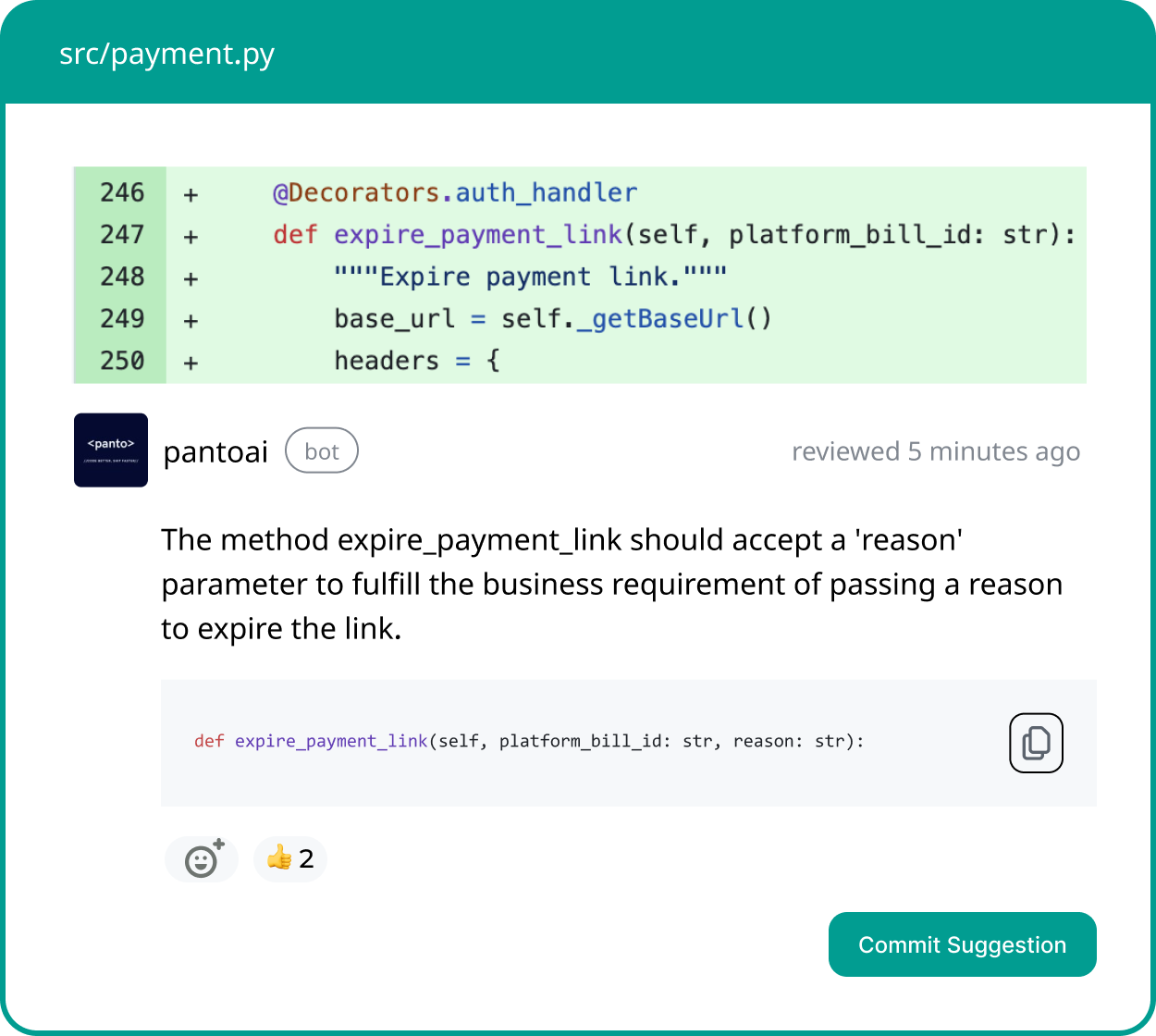
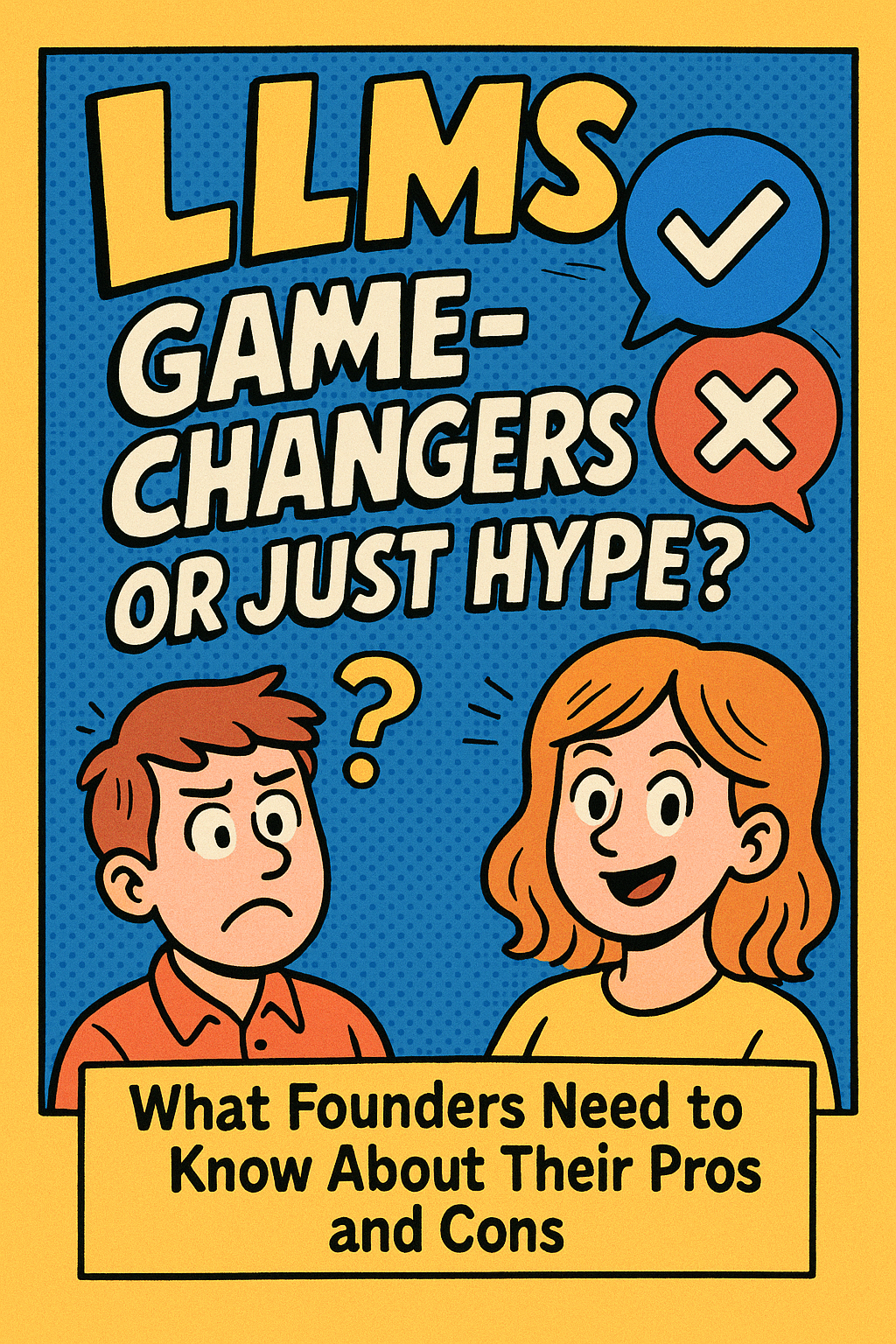
LLMs: Game-Changers or Just Hype? What Founders Need to Know About Their Pros and Cons
Large Language Models (LLMs) are everywhere, but are they truly revolutionary or just an overhyped trend? This article cuts through the noise, offering founders a balanced perspective on the real strengths and critical limitations of LLMs, and how to strategically leverage them for genuine impact.
Jul 25, 2025

PR Chat: A Practical Lever for Healthier, Faster Software Systems
Traditional asynchronous pull request reviews can slow down software development. This article introduces PR chat as a powerful solution, demonstrating how real-time conversations directly within the code review process can significantly accelerate review cycles, improve code quality, and boost team efficiency.
Jul 24, 2025
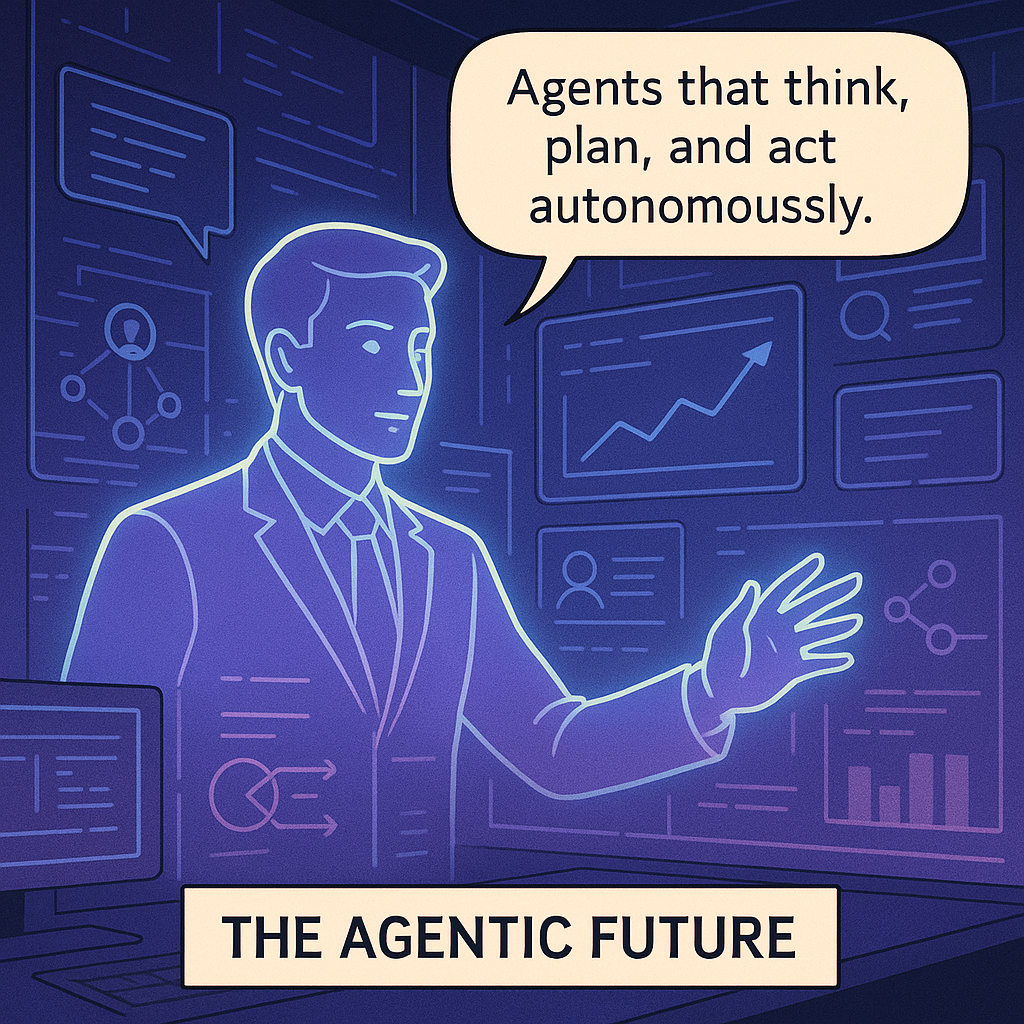
The Age of Agentic AI: The Next Leap in Intelligent Software Systems
We are entering a profound shift in artificial intelligence, moving from reactive systems to proactive, autonomous agents. This article delves into Agentic AI, its core distinctions from traditional AI, and how it's poised to redefine complex problem-solving, scalability, and the future of intelligent software.
Jul 22, 2025
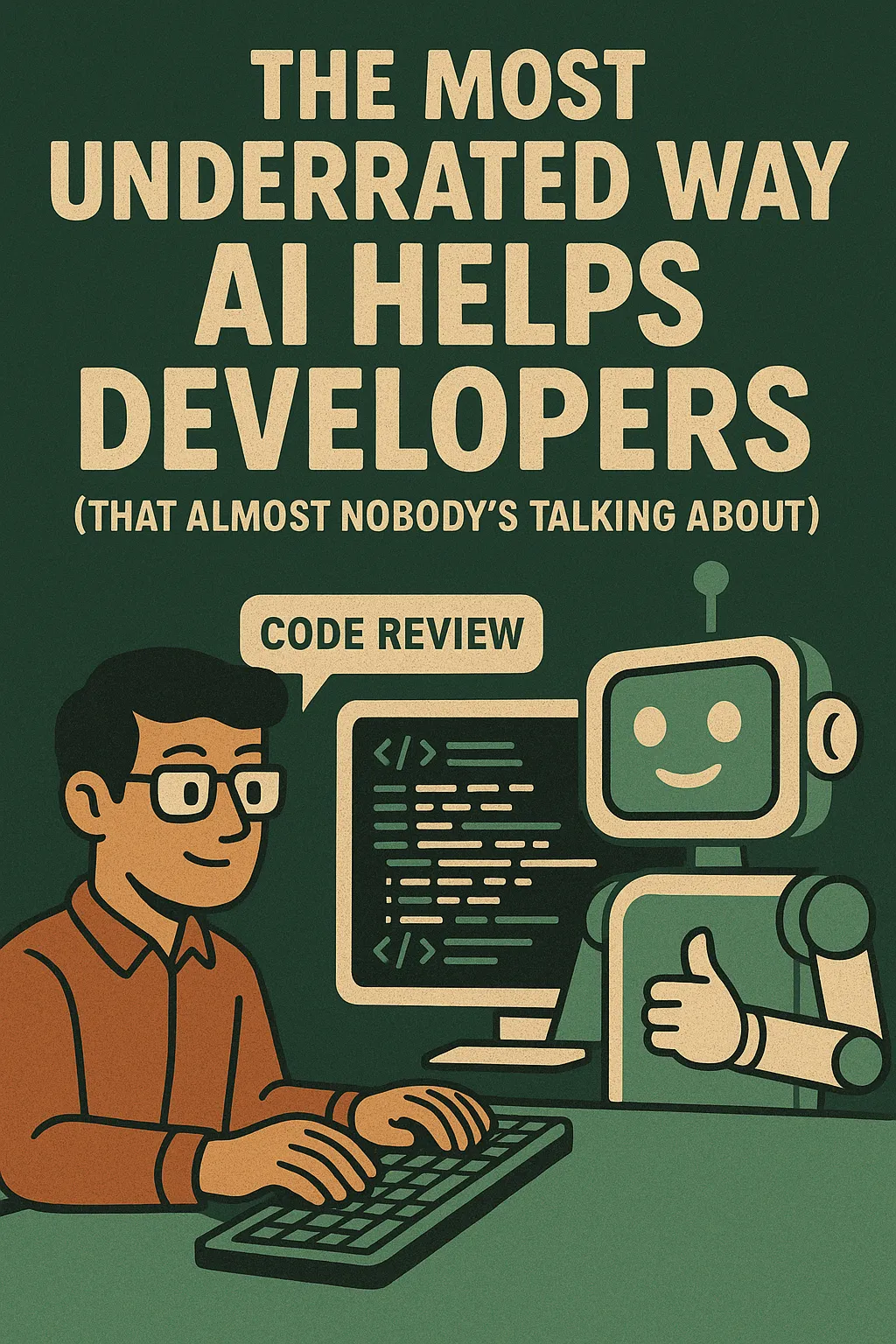
The Most Underrated Way AI Helps Developers (That Almost Nobody’s Talking About)
When people talk about AI in software development, the spotlight usually falls on features like code autocompletion or automatic bug detection. Those are great, but there’s an even more powerful — and far less hyped — use case quietly reshaping how developers work: **continuous, context-aware AI-powered code reviews.**
Jul 21, 2025
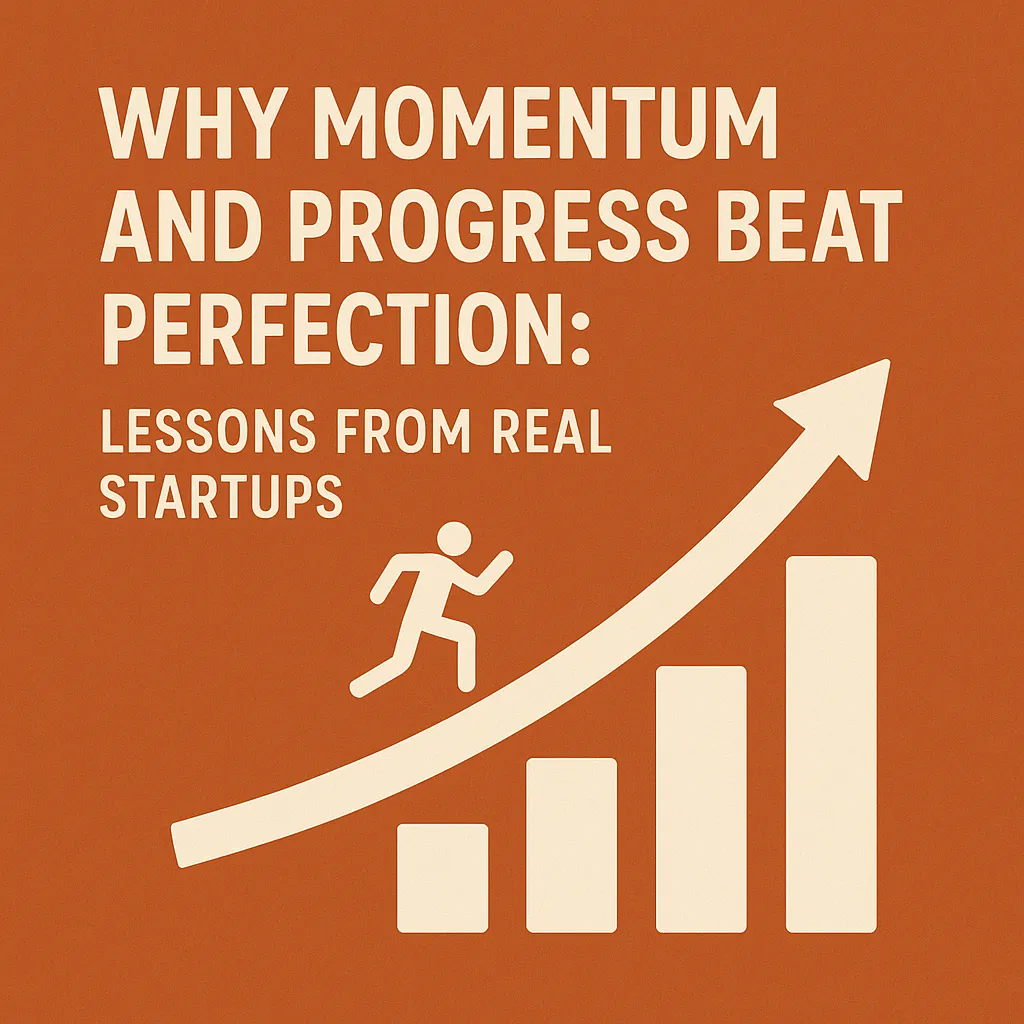
Why Momentum and Progress Beat Perfection: Lessons from Real Startups
In the startup world, waiting for perfection is a trap. This article explores why consistent progress, rapid iteration, and a relentless focus on action have driven the success of major companies like Facebook, Airbnb, and Dropbox.
Jul 19, 2025
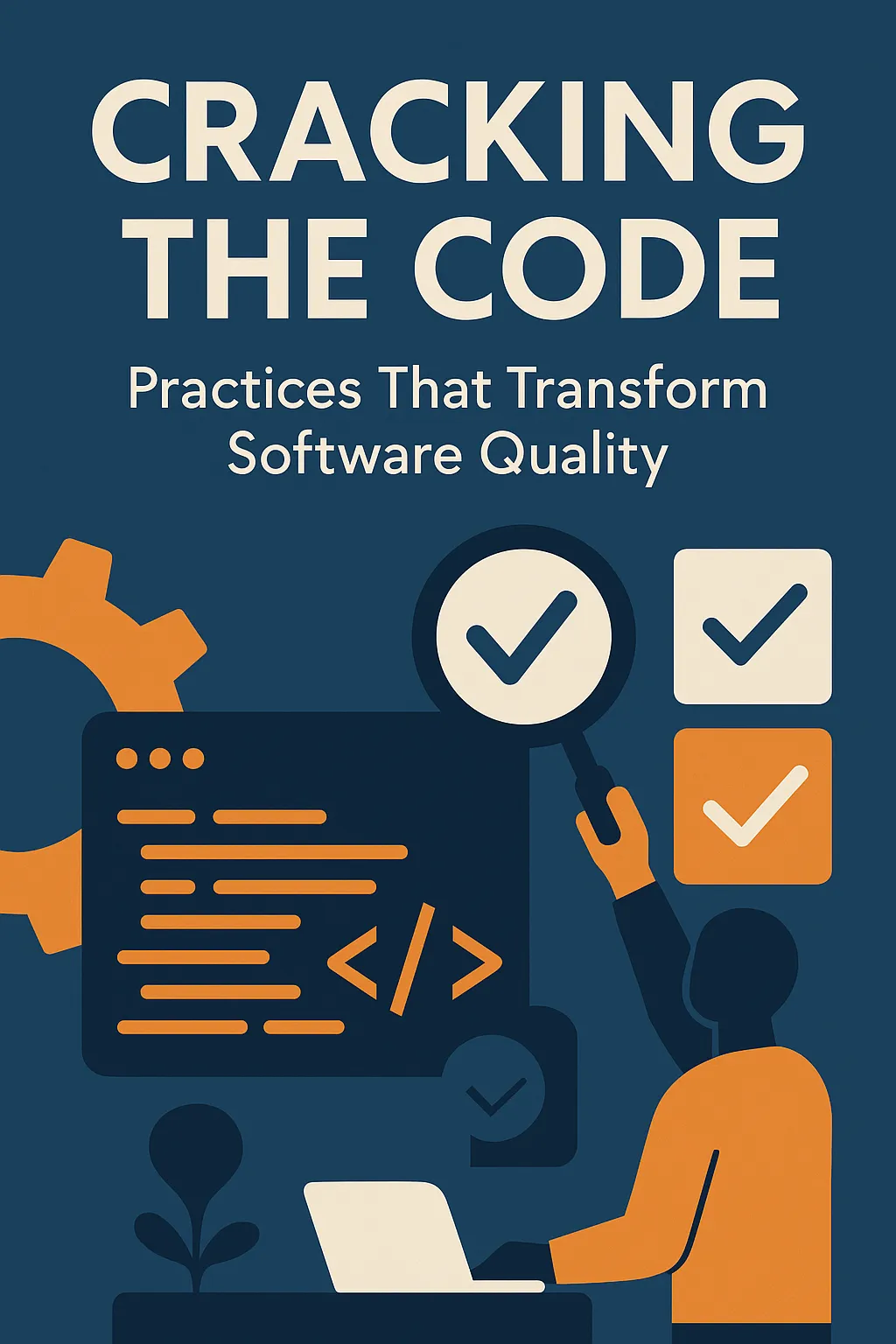
Cracking the Code: Practices That Transform Software Quality
Maintaining high code quality is an ongoing process that impacts productivity and reliability. This article reveals often-overlooked practices and the role of next-gen AI tools like Panto AI in achieving elite software quality.
Jul 16, 2025